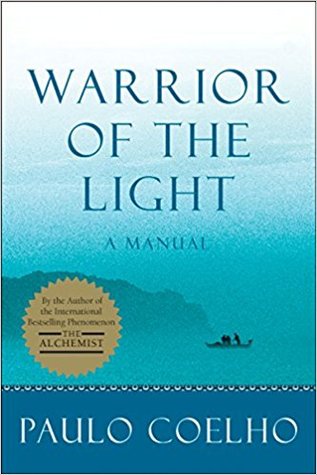More on this book
Community
Kindle Notes & Highlights
A Warrior can distinguish between the transient and the enduring.
Then he opens his heart to the Universe and asks God to give him the inspiration he needs to turn every blow from his enemy into a lesson in self-defence.
“Convince your enemy that he will gain very little by attacking you. This will diminish his enthusiasm.”
He often finds himself faced by the same problems and situations, and seeing these difficult situations return, he grows depressed, thinking that he is incapable of making any progress in life. “I’ve been through all this before,” he says to his heart. “Yes, you have been through all this before,” replies his heart. “But you have never been beyond it.” Then the Warrior realizes that these repeated experiences have but one aim: to teach him what he does not want to learn.
The Warrior of the Light knows that no one is stupid and that life teaches everyone—however long that may take.
He always does his best and expects the best of others. Through his generosity, he tries to show each person how much they are capable of achieving. Some of his companions say: “Some people are so ungrateful.” The Warrior is not discouraged by this. And he continues to encourage others because this is also a way of encouraging himself.
Every Warrior of the Light has trodden a path that was not his. Every Warrior of the Light has suffered for the most trivial of reasons.
That is why he is a Warrior of the Light, because he has been through all this and yet has never lost hope of being better than he is.
“The consequences of our actions are the scarecrows of fools and the beacons of wise men.”
“The chessboard is the world; the pieces are the gestures of our daily lives; the rules of the game are what we call the laws of Nature. The player on the other side is hidden from us, but we know that his play is always fair, just, and patient.”
A Warrior of the Light does not postpone making decisions.
If his decision is correct, he will win the battle, even if it lasts longer than expected. If his decision is wrong, he will be defeated and he will have to start all over again—only this time with more wisdom.
If he is in search of inspiration, he reads, on the lips of his neighbor, the words that his guardian angel is trying to say to him.
When he is tired or lonely, he does not dream about distant men and women; he turns to the person beside him and shares his sorrow or his need for affection with them—with pleasure and without guilt.
“The Way involves respect for all small and subtle things. Learn to recognize the right moment to adopt the necessary attitudes.”
While he meditates, the Warrior is not himself, but a spark from the Soul of the World. Meditation gives him an understanding of his responsibilities and of how he should behave accordingly.
It is not quite like that: He must act, but he must allow room for the Universe to act too.
A Warrior balances solitude and dependence.
When the Warrior watches a sunset and feels no joy, then something is wrong.
But he never confuses tension with anxiety.
God never abandons His children, but His purposes are unfathomable, and He builds the road with our own steps.
The river adapts itself to whatever route proves possible, but the river never forgets its one objective: the sea. So fragile at its source, it gradually gathers the strength of the other rivers it encounters. And, after a certain point, its power is absolute.
Some of his companions spend their lives moaning about their lack of choice or passing comment on the decisions made by other people. The Warrior, however, transforms his thinking into action.
A Warrior of the Light who trusts too much in his intelligence will end up underestimating the power of his opponent.
But even though he fights against oppression, at no point does he attempt to judge the oppressor. Each person will answer for his actions before God and so, once the Warrior has completed his task, he makes no further comment.
Time works in his favor; he learns to master his impatience and avoids acting without thinking.
A Warrior never picks fruit while it is still green.
A Warrior of the Light needs both patience and speed. The two worst strategic mistakes to make are acting prematurely and letting an opportunity slip. To avoid this, the Warrior treats each situation as if it were unique and never resorts to formulae, recipes, or other people’s opinions.
When he goes into battle he remembers what Christ said: “Love your enemies.” And he obeys.
“By their fruits ye shall know them,” said Jesus. Following this rule, he never goes wrong.
That is why he does the same thing. But he never confuses pride with vanity, and he never believes his own exaggerations.
A Warrior of the Light makes decisions. His soul is as free as the clouds in the sky, but he is committed to his dream. On his freely chosen path, he often has to get up earlier than he would like, speak to people from whom he learns nothing, make certain sacrifices. His friends say: “You’re not free.” The Warrior is free. But he knows that an open oven bakes no bread.
The Warrior of the Light listens with respect to Gandhi’s strategy and he remains unconvinced by those who, incapable of achieving any result at all, preach renunciation.


